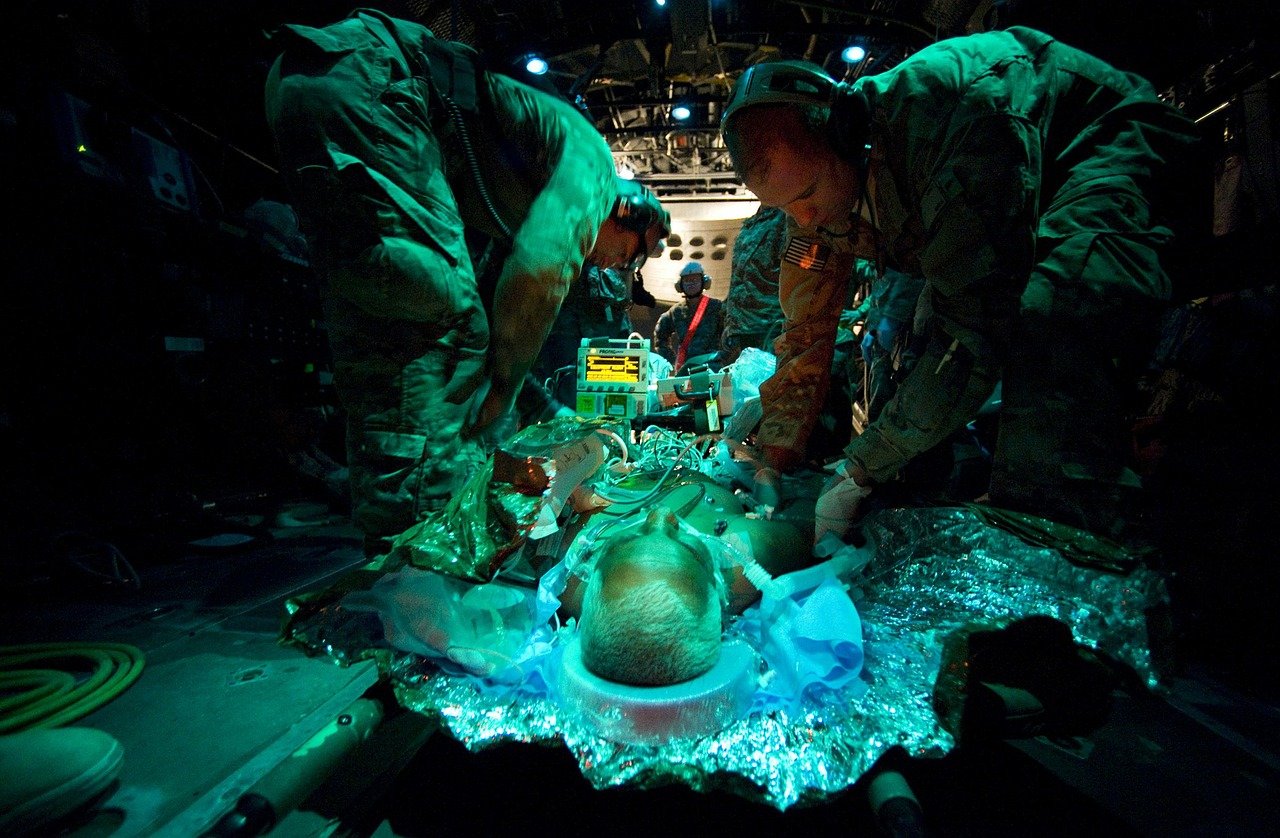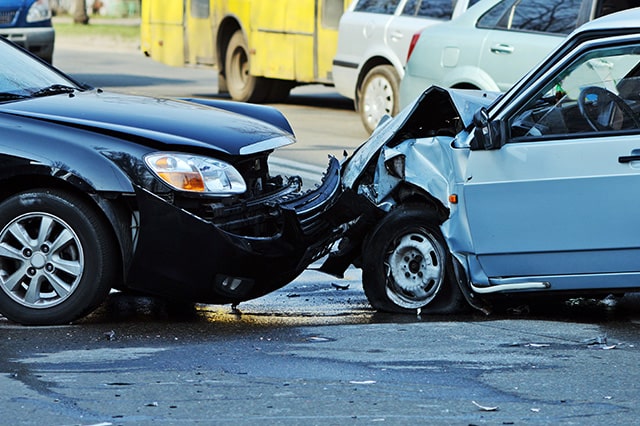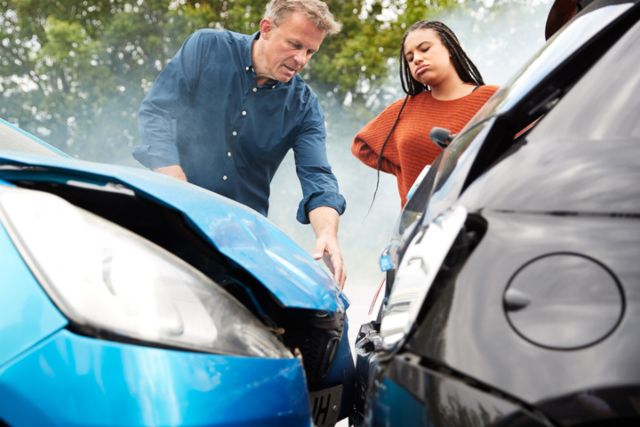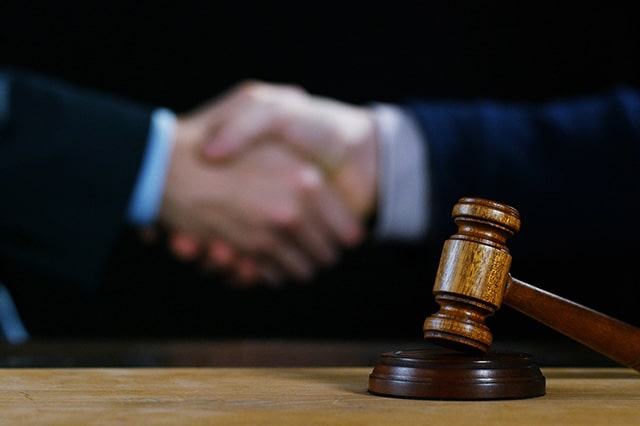
What is Third-Party Liability in a Car Accident: Pointers from Sabbeth Law






Your Right to Compensation When Third Parties Are Involved
In certain types of car crashes, it is possible for the injured party to claim compensation from or file a case against a party who is not directly involved in the accident. This is called third-party liability.
Third-party liability in a car accident is the legal concept that allows an injured party to seek compensation from the at-fault driver’s insurance or another responsible third party. It is crucial because this means the burden of financial responsibility is on the person or entity at fault and not on the injured party.
Imagine driving through Vermont or New Hampshire, confidently navigating the winding roads when another driver makes a mistake resulting in an accident, leaving you with unexpected expenses. Third-party liability ensures that the at-fault party’s insurance covers your injuries and damages, preventing undue financial stress.
Our firm, Sabbeth Law, has extensive experience assisting clients in understanding and pursuing third-party claims. Our commitment is to secure fair compensation, enabling clients to focus on recovery without the added worry of financial burdens. This journey into the intricacies of third-party liability is essential not just for legal clarity but also for peace of mind.

What Is Third-Party Liability?
Imagine being in a car accident where you’re at fault, and another person is injured. In this situation, third-party liability coverage protects you by paying for the injuries or damages to others involved.
Third-party liability insurance is essential when our actions (or inactions) cause harm to someone else. This type of insurance handles the costs for which a person is responsible. It ensures the legal obligations are met without bearing the financial burden on the at-fault person alone.
But how does this differ from first-party claims? First-party claims involve seeking compensation from one’s own insurance provider for their personal losses. In contrast, a third-party claim involves the injured party claiming against someone else’s insurance—typically when that person’s negligence caused the harm.
Liability coverage is crucial when accidents occur. It includes bodily injury liability, which addresses medical expenses, and property damage liability, which covers repairs to damaged property. In many states, such as Vermont, this kind of coverage is mandatory for drivers. In Vermont, 23 VSA Section 800 provides that a motor vehicle cannot be operated if it is not covered by the minimum required automobile liability policy.
If the at-fault party’s coverage is inadequate or the damages exceed policy limits, victims might turn to their personal insurance or even legal action.
Understanding the nuances of third-party liability can help ensure we’re protected in various situations. It’s a vital part of car insurance and provides the peace of mind that we’re covered when accidents happen.
Contact UsTypes Of Accidents Involving Third-Party Liability
In these types of accidents, the injured party may go after the liable third party or parties.
Multi-car Pile-ups
Accidents with third-party liability can occur in various scenarios, each with unique complexities. One common situation is multi-car pile-ups, where multiple drivers may be at fault. These accidents create challenges in determining the responsible parties, as several at-fault drivers might share the liability for damage and injuries.
Commercial Vehicle Accidents
These incidents can occur with delivery trucks or rideshare drivers. The company employing the driver may be partly responsible for the accident. This complexity requires a clear investigation to establish the liability of each party.
Poor Road Maintenance
Accidents resulting from poor road maintenance may involve third-party claims against governmental or municipal bodies. Potholes, inadequate signage, or other road defects can contribute to accidents. Holding these entities accountable can be challenging due to the legal protections often in place.
Defective Vehicle Parts
Another significant factor is defective vehicle parts, which can lead to accidents and involve third-party liability claims against manufacturers. The manufacturer could be liable for the damages if a brake failure or another mechanical issue causes an accident,.
These scenarios highlight the complexity of third-party claims, where thorough analysis and legal experience are critical. Each case requires careful examination to understand the role of each involved party, making experienced legal assistance even more vital.

How Third-Party Liability Impacts Compensation
In a car accident involving third-party liability, the impact on compensation is profound. Personal injury claims hinge on proving another party’s negligence to cover expenses linked to the accident. This process can involve reclaiming costs for medical expenses, lost wages, and noneconomic damages like pain and suffering.
Third-party liability comes into play notably when claims against an uninsured or underinsured driver arise. In such cases, the victim may seek compensation through their own underinsured motorist coverage.
Medical bills can quickly escalate after an accident. When a third-party claim is successful, it can cover these costs, alleviating financial stress. It’s essential to know the coverage limits of both the at-fault driver’s policy and one’s own policies, such as collision coverage or comprehensive coverage.
Vermont is an at-fault state, meaning those at fault are liable for damages. On the contrary, living in a no-fault state means that each party’s insurance typically covers their losses regardless of fault by using personal injury protection (PIP). Benefits like medical payments (MedPay) and vehicle repairs can also be claimed.
Claims might face challenges due to jurisdictional differences or insufficient coverage. For instance, the at-fault party’s insurance might not fully cover all damages. Exploring options like personal injury protection or MedPay becomes vital in these circumstances. Understanding the nuances of third-party liability not only offers peace of mind but also optimizes the extent to which compensation can be pursued.
Steps To Take After A Third-Party Car Accident
When involved in a car accident caused by another driver, taking immediate action is crucial. Start by ensuring everyone’s safety and checking for injuries. If necessary, call emergency services for medical assistance.
Next, gather evidence at the scene. This includes taking photos of vehicle damage, skid marks, and any relevant road conditions. It’s important to collect contact and insurance information from the other drivers involved.
Ensure to report the accident to the police and obtain an official police report. This document is critical for proving fault and will be useful when dealing with insurance companies.
Notify the insurance company about the accident. Provide them with detailed information about the incident and the third party’s insurance details. An insurance adjuster from their team will likely assess the damage.
Seek medical attention, even if your or your loved one’s injuries seem minor. Obtaining documentation of injuries is essential for potential claims. Keep all medical records and bills organized as proof of incurred expenses.
Lastly, consider getting a car accident attorney practicing third-party liability cases. An attorney can guide you through the process, helping ensure you receive appropriate compensation for damages and injuries. Taking these steps can make a difference in resolving the situation smoothly.
Contact UsProving Third-Party Liability In Vermont
Establishing third-party liability in Vermont requires demonstrating negligence or fault. We need to prove four key elements: duty of care, breach of duty, causation, and damages. Each element plays a crucial role in holding another party accountable. Without satisfactorily establishing these, a claim might not succeed.
In Vermont, the statute of limitations is vital for timely filing. For car accident claims, delays can jeopardize our ability to secure compensation. It’s important to understand the deadlines and ensure all paperwork is submitted within the required timeframe.
One common challenge is determining fault when multiple parties are involved. Disputes over who is responsible can complicate the process. Claimants often face resistance from insurance companies that dispute liability. Since their interests usually conflict with the claimants’ interests, thorough preparation and evidence are vital to counter their claims.
Handling conflicting or insufficient evidence is another obstacle. An experienced attorney would carefully gather and evaluate all the information related to the accident to build a strong case. Having competent legal representation that can navigate these complexities and advocate for our interests effectively is crucial.
At Sabbeth Law, we focus on securing the best possible outcomes for our clients, reinforcing the need for skilled guidance in the legal process. Understanding Vermont’s judicial nuances helps ensure we can effectively manage third-party liability cases.
When dealing with casualty and third-party liability claims, Vermont provides specific forms and procedures. Access the necessary forms and further information directly from Vermont’s Casualty Third-Party Liability guidelines.
When And Why You Need A Lawyer For Third-Party Liability Claims
Navigating third-party liability claims can be tricky, but there’s no need to tackle this alone. Engaging a personal injury attorney is key to handling these challenges effectively.
Why seek legal advice? Simply put, car accident attorneys have the experience needed to gather critical evidence. They delve into accident details, ensuring nothing is overlooked. This thoroughness is crucial for establishing fault and securing maximum compensation for damages.
Negotiating with insurance companies isn’t straightforward, unfortunately. Insurers often aim to minimize payouts. A knowledgeable attorney is better equipped to counter these tactics, advocating for what you rightfully deserve.
Particularly in Vermont, understanding state-specific laws adds another layer of complexity. Attorneys familiar with local regulations can navigate this efficiently, ensuring compliance and maximizing claim success.
Remember the importance of evidence, which includes witness statements, police reports, and medical records. A well-documented case is stronger and more likely to succeed in negotiations or court.
In cases involving university property or employees, such as accidents with vehicles leased by an institution, it’s essential to report these incidents accurately. For valuable insights, the University of Vermont outlines specific procedures in its general insurance protection policy.

Contact Us Today For Compassionate And Thorough Legal Representation
We recognize how challenging it can be to navigate the complexities of third-party liability in car accidents. At Sabbeth Law, our team is committed to supporting you through every step of your claim.
Our firm is located in Vermont and also proudly serves clients in New Hampshire. We leverage our extensive national networks to connect with top professionals, ensuring that our clients receive the best possible representation.
We prioritize understanding your personal losses and how they affect your everyday life, allowing us to advocate effectively on your behalf. This approach is essential in helping you secure the compensation you deserve.
Our experience handling third-party liabilities enables us to provide informed guidance, addressing each client’s unique needs. We believe that a thorough, detail-oriented approach helps ensure the best possible outcomes.
If you are facing a car accident-related claim involving third parties, such as insurance companies or even the local government, contact us today. We are ready to discuss your case and explore potential compensation options. Your journey toward resolution begins with that first step.
Contact UsPractice Areas
Client Testimonials
LUKE PARMENTER“Immediately after my son’s injury at work, he was treated poorly. Over the course of the next few days it became even worse, so I called Mike and he and Crystal have been absolute lifesavers during the process. Mike is not your typical stuffed suit lawyer who only cares about the bottom line he genuinely cares about his clients and his assistant Crystal is beyond amazing! My thanks to you both!”
Client Testimonials
“Immediately after my son’s injury at work, he was treated poorly. Over the course of the next few days it became even worse, so I called Mike and he and Crystal have been absolute lifesavers during the process. Mike is not your typical stuffed suit lawyer who only cares about the bottom line he genuinely cares about his clients and his assistant Crystal is beyond amazing! My thanks to you both!”
LUKE PARMENTER
“I could never ask for a better attorney, to fight for me, to believe in me, and have faith in me, than what I found in Mike Sabbeth, He doesn’t treat you like a client, he treats you as if you are one of his own family members, He will fight for you, with all he has, and is ALWAYS up front and honest with you about everything!”
SANDRA DRUGE
